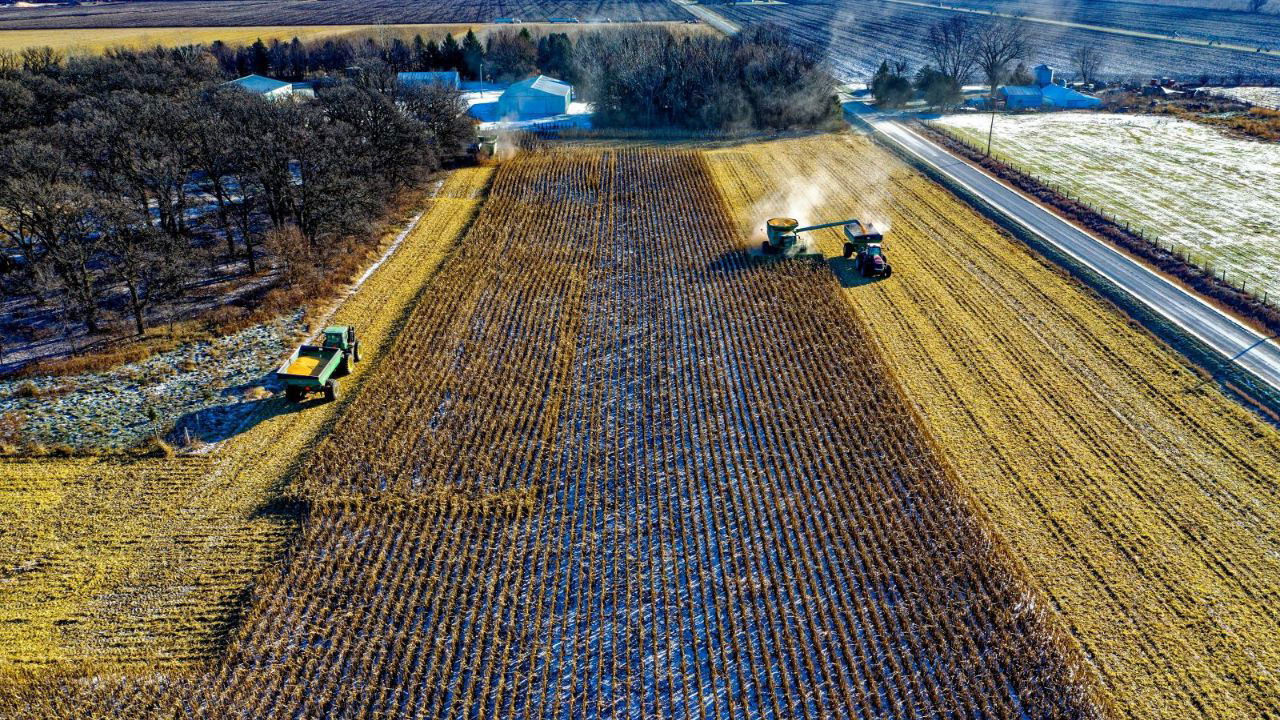
Agriculture has always been the backbone of the Indian economy, with over half of the country's workforce engaged in this sector. As India strengthens its position as a global agrarian powerhouse, technological advancements in post-harvest processing are becoming essential. With the ever-growing demand for agricultural produce, the focus is now shifting towards improving the efficiency and hygiene of post-harvest processes to maximise yield, reduce waste, and ensure food safety.
Role of Technology in Post-Harvest Processing
Post-harvest processing is a critical phase in the agricultural value chain that involves cleaning, sorting, grading, packaging, and storage of crops. With the advent of cutting-edge technology, this process has become more efficient and sustainable. The integration of high-tech equipment and digital solutions has revolutionized how post-harvest activities are managed. Farmers and agribusinesses now have access to various systems and machines that help maintain the quality of produce while minimizing losses.
The significance of technology in agriculture extends beyond just production. In post-harvest processing, digital tools such as automated cleaning systems, advanced sorting machines, and real-time monitoring devices ensure optimal conditions for storage and transportation, which are crucial to preserving the quality and freshness of the harvest.
Advanced Cleaning Solutions: Cornerstone of Post-Harvest Efficiency
Effective cleaning is fundamental to post-harvest processing, ensuring that produce remains free from contaminants that can affect quality and safety. In modern agriculture, high-pressure cleaners and hot water cleaning systems have become essential tools. These solutions not only provide effective cleaning but also help in maintaining the longevity and efficiency of the equipment used in post-harvest processing.
High-Pressure Cleaners for Machinery and Equipment:
High-pressure cleaners are indispensable in the agricultural sector, especially for cleaning equipment like tractors, combine harvesters, and other machinery used in the post-harvest process. These machines often accumulate dirt, dust, and crop residues, which can impact their efficiency and lifespan. High-pressure cleaners, equipped with hot water capabilities, are highly effective in removing stubborn dirt and residues, ensuring the machinery remains in optimal working condition. This not only improves the hygiene of the harvested produce but also reduces the risk of equipment breakdowns during peak harvesting periods.
Enhancing Food Safety and Quality Through Smart Cleaning
In addition to improving operational efficiency, advanced cleaning solutions play a pivotal role in ensuring food safety and quality. Contaminants such as dust, pesticides, and microbial agents can significantly impact the safety and quality of agricultural produce. Therefore, maintaining a clean environment throughout the post-harvest process is essential.
Wet and Dry Vacuum Cleaners for Sensitive Areas:
For delicate parts of the machinery where high-pressure cleaning is not feasible, wet and dry vacuum cleaners offer an effective alternative. These vacuum cleaners are ideal for removing loose dirt and dust from sensitive areas, such as electronic components and control panels. Regular vacuum cleaning helps prevent the build-up of fine particles that can cause damage to the equipment or compromise the quality of the product.
Ensuring Hygiene in Storage and Packaging:
Post-harvest losses often occur during storage due to improper cleaning and maintenance of storage facilities. Cleaning technology solutions, designed for the agricultural sector, ensure that storage environments remain free from contaminants that can spoil the produce. Regular cleaning of storage units with high-pressure cleaners and vacuum systems prevents the growth of mould and bacteria, thereby extending the shelf life of the harvest.
Yield Mapping and Precision Agriculture:
Yield mapping technology, integrated with combined harvesters, provides valuable data on crop yield and quality across different field zones. This information can be used to tailor post-harvest processes, such as sorting and grading, to the specific needs of each batch. Additionally, precision agriculture tools that apply herbicides and fertilizers based on the specific requirements of each plant help reduce chemical residues on the crops, enhancing food safety and quality.
Real-Time Monitoring of Storage Conditions:
Sensors and IoT (Internet of Things) devices installed in storage facilities enable real-time monitoring of temperature, humidity, and air quality, which are critical for maintaining the freshness and quality of the harvest. Farmers can adjust storage conditions by analysing this data to prevent spoilage and reduce losses.
As India continues to evolve as an agrarian economy, the adoption of advanced cleaning technologies and digital solutions in post-harvest processing will play a vital role in enhancing the agricultural sector's productivity and sustainability. By harnessing these technologies, farmers can ensure cleaner harvests, better-quality produce, and safer food supply chains.
As the industry moves towards more sustainable and efficient practices, investing in advanced cleaning technology will be crucial for farmers and agribusinesses to stay competitive in the global market. By embracing these technological advancements, we can look forward to a future where agriculture is not only more productive but also more sustainable, cleaner, and safer for all.
















